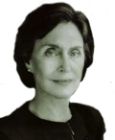
Relationships
The Thriller
I stood transfixed. "What were you doing just now?" I asked.
Posted February 7, 2009
The summer I turned fourteen, I spent a month at the Lake Erie resort town of Cedar Point, with a friend whose parents ran a food concession on the boardwalk, which boasted the highest roller coaster in Ohio. It was called The Thriller and I fell in love with it. I hung around it so much that the daytime manager, seeing my passion, eventually allowed me to ride for free in the mornings, when there weren't many customers. One day I decided to see how many consecutive rides I could clock without stopping and rode for two and a half hours straight. Even so, the thrill of the slow clank to the top followed by the heart-stopping plunge to the bottom continued unabated.
After I had children of my own, my reckless daring gradually disappeared until they could not induce me to accompany them on the big rides, or eventually the small ones either, until finally I swore off all of them-a not uncommon side effect of responsibility. Now I wonder if my youthful fearlessness and love of danger didn't somehow prepare me to deal with the traumatic brain injury my dear husband suffered more than half a century later, that left him like someone with advanced Alzheimer's. Dealing with his accident (a fall from a sleeping loft) involved a similar extreme alternation of anticipation, tension, terror, and relief. With Scott himself no longer capable of either hope or dread, I took the ride for us both, clutching the sides, holding my breath, screaming as we fell, hanging on for dear life, bracing for the next slow uphill climb.
On the Thriller, the exhilarating build-up of terror and relief kept me in a state of hermetic equilibrium, which didn't subside until the moment I returned, wobbly and off balance, to terra firma. Just so, every time I left the enclosed world of Scott's accident for the world outside, my precarious stability broke down.
After a full year had passed, and I realized I must abandon hope for his recovery and adapt to what is (as I recount in my new memoir, TO LOVE WHAT IS), I felt stable again. But when his mind took an unexpected turn for the better, hope returned, and the terrifying roller-coaster ride I had thought was over started back up.
One minute he was lying on the sofa as usual, looking up at the Japanese paper lanterns hanging from the ceiling, and the next minute he was pushing himself up to standing, rolling up a newspaper, and waving it at the lanterns to stir enough air to move them.
I stood transfixed at this first display of initiative since his accident. He had a desire, transformed it into a plan, and remembered it long enough to execute, though he gave up before succeeding.
"What were you doing just now?" I asked.
"Trying to get those lanterns to move, but it didn't work."
"It will when you're stronger," I said, and ran to email a report of this momentous event to friends and family, full of renewed hope.

